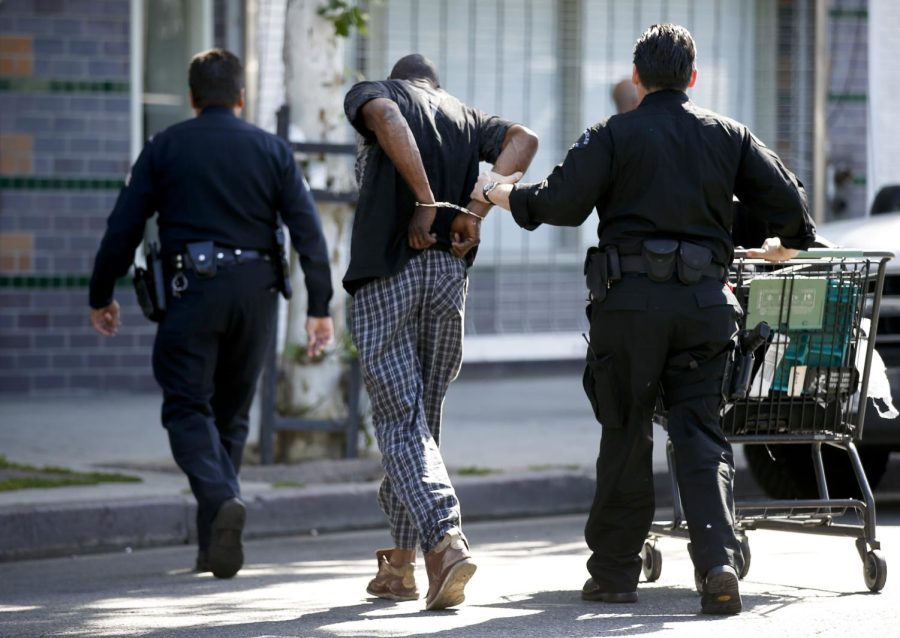It is no secret that California has a homelessness problem. To simply call it a “problem,” however, understates its magnitude.
California has by far the largest homeless population of any state, and the number has sharply increased in the past decade — the most recent estimate puts it at over 170,000. Any Californian city-dweller will recognize the images of bustling city streets lined with tents and ragged people hiding in the shadows of skyscrapers. The use of these images as a propaganda tool is favored by both left and right-wing partisan media outlets, albeit they push divergent narratives as to the cause.
At a loss for what to do but desperate to look like they’re doing something, local governments have hit upon a solution to the homeless problem: punish the homeless.
In 2019, the City of Los Angeles unveiled the Cleaning and Rapid Engagement (CARE) program, under the auspices of the L.A. Homeless Services Authority. The goal of the program was to clean up homeless encampments, removing trash and debris and mitigating any health or safety hazards. Though this is clearly good and important work, all it does is aggravate the already terrible situation that many homeless people are in, while offering no solutions for them. So-called “sweeps” of homeless encampments simply shuffle their residents around the city in an endless cycle where they’re forced to be on the move constantly, just so the city can engage in futile attempts to keep up appearances.
Though it is the most infamous example, Los Angeles is not the only city to employ these tactics. San Diego, Oakland, Portland, Dallas, Austin, Chicago, and New York, among countless other cities, all do the same thing, sweeping away homeless encampments with careless disregard for the wellbeing of those who are forced to live on the streets. These cruel methods are compounded by additional measures which include the removal of public toilets at night (forcing many homeless people to defecate on the streets), installation of hostile architecture (i.e. dividers on benches and spikes under bridges) to stop homeless people from sleeping in public places, and bans on camping, panhandling, and living in cars. It’s no wonder, then, that in the past few years, crime rates among the homeless have seemed to dramatically increase — not because homeless people are becoming more violent or dangerous, but because many more get charged with such crimes as “trespassing” and “loitering.”
For all the rhetoric about ending the homeless crisis or helping those who are most vulnerable, the reality is that the prime directive for most local governments seems to be keeping the homeless out of sight and out of mind. Public policy is built not around the needs of the unhoused, but the discomfort of the housed. Rather than compassion for their plight, all that homeless people are regularly offered is disdain.
From an early age, most children are raised with the belief that the majority of homeless people are homeless because they’re addicted to alcohol and/or drugs. While it is true that rates of addiction among the homeless are quite high, many more are on the streets simply because rising costs of living combined with stagnating wages force people out of their homes. However, people fear what they don’t understand, and when unwilling or unable to solve a problem, they often prefer to simply sweep it under the rug (or in this case, off the streets), imagining that what they can’t see doesn’t exist.
There’s nothing new about the practice of blaming the lowest rung of society for their own suffering — not only does it have a long and seasoned history in the United States, but in countless other civilizations both past and present. It is often said that a society is measured by how it treats its weakest members, and by that metric, American society has failed. In almost every major city, policies surrounding homelessness are driven by the impulse to punish homeless people for their very existence, criminalizing the most basic acts and rendering false the notion that “no human is illegal,” because in a very real sense, homeless people are.



Christina Gonzales • May 22, 2023 at 6:35 pm
This article caught my attention, because this is what I have been saying for a long time now. I have a husband and 2 daughters with mental illness and navigating the Mental Health care system has been challenging. I agree that someone who is suffering from mental illness should not be treated like criminals. The criminal system is not designed to humanize someone who is in crisis or in need of help. Most people with mental illness are usually or have already been traumatized by the Police presence and in most cases when someone is in crisis and deputies show up it can escalate their episode and make a situation worse. A cell is not a therapeutic place for someone who is in a mental crisis. I know for fact that if you are in custody and feel or say that you are suicidal their protocol is lock you up in a cell with nothing, no clothes-naked only a blanket. How is this suppose to be helpful or therapeutic.
Thank you for your thoughts on the matter, hope that real change for the bother and sister who suffer from Mental illness.
Rachel Hayes • May 21, 2023 at 7:55 am
Very well done! Thank you. I am a homeless human in San Diego and the same is happening here. I am clean and sober out here on Commercial Street. I do whatever I can to advocate for the homeless humans that do not have a voice. Speak at city council meetings attend rallies, interviews with anyone who will talk to me about the plight of homelessness.